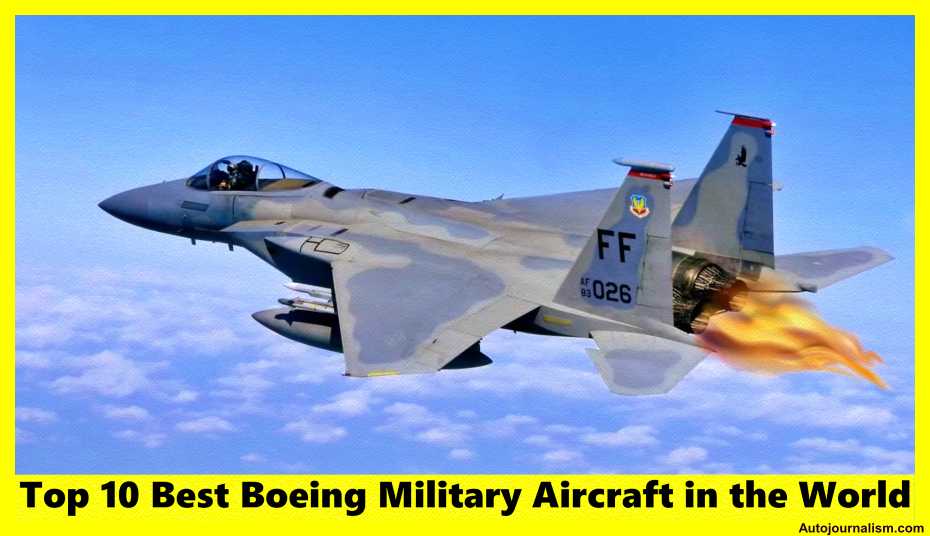Top 10 Largest Aircraft Manufacturers In The World
Today in this article we will share the Info related to the Top 10 Largest Aircraft Manufacturers In The World in 2024 with HD images and Tables, You can download this page as a PDF, just go to the end of this article and press the PDF Download Button.
- In the ever-evolving realm of aviation, the competition among aircraft manufacturers is fierce, with companies continually pushing the boundaries of innovation and technology. As we delve into the current landscape of the aerospace industry in 2024, it becomes evident that certain giants stand out as the largest aircraft manufacturers, driving the industry forward with cutting-edge developments and unparalleled expertise.
Table of Top 10 largest aircraft manufacturers in the world
Here is a table summarizing the information on the top 10 largest aircraft manufacturers in the world for the year 2024:
| Company | Specialization | Revenue
(in Billion USD) |
|---|---|---|
| 1. Boeing | Commercial Airliners, Weapon Systems, Satellites | $75.7 |
| 2. Airbus | Commercial Airliners, Military Aircraft | $67.95 |
| 3. Lockheed Martin | Aerospace, Military Technology | $67.6 |
| 4. Raytheon Technologies | Aircraft Engines, Technology | $67.8 |
| 5. Northrop Grumman | Military Aircraft, Hypersonic Weapons | $38.6 |
| 6. Safran | Navigation Systems, Commercial and Military Tech | $23 |
| 7. GE Aviation | Aircraft Engines, Aviation Technology | $22 |
| 8. Leonardo | Civilian and Military Aircraft, Cybersecurity | $16.2 |
| 9. Bombardier | Business and Private Jets | $7.63 |
| 10. United Aircraft Corporation | Military Aircraft, Commercial and Cargo Planes | $6 |
This table combines the Company and Rank columns, providing a succinct view of each company’s specialization and revenue.
Also read: Free PPT Slides
Top 10 Largest Aircraft Manufacturers In The World 2024
In the ever-changing environment of aviation, staying current on the most significant players in the business is crucial. As we step into the year 2024, here is a comprehensive list of the top 10 largest aircraft manufacturers in the world at the present time.
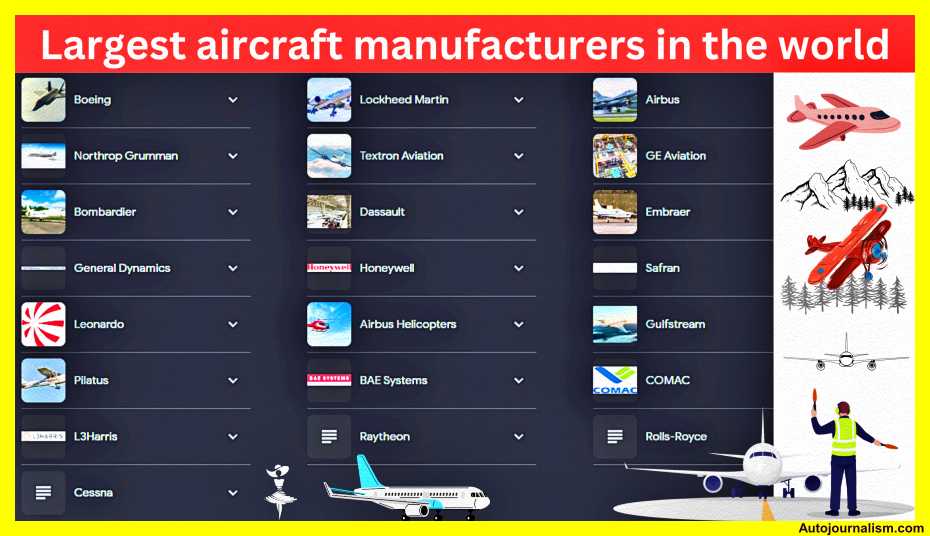
#10. United Aircraft Corporation (Revenue: $6 billion)
At number 10, the United Aircraft Corporation, with a reported revenue of $6 billion in 2018, remains a prominent player in the aviation and aerospace industry. With 100,000 employees, the majority of its military aircraft is dedicated to the Russian military. Despite geopolitical challenges, the company continues to supply commercial and cargo aircraft to Western nations.
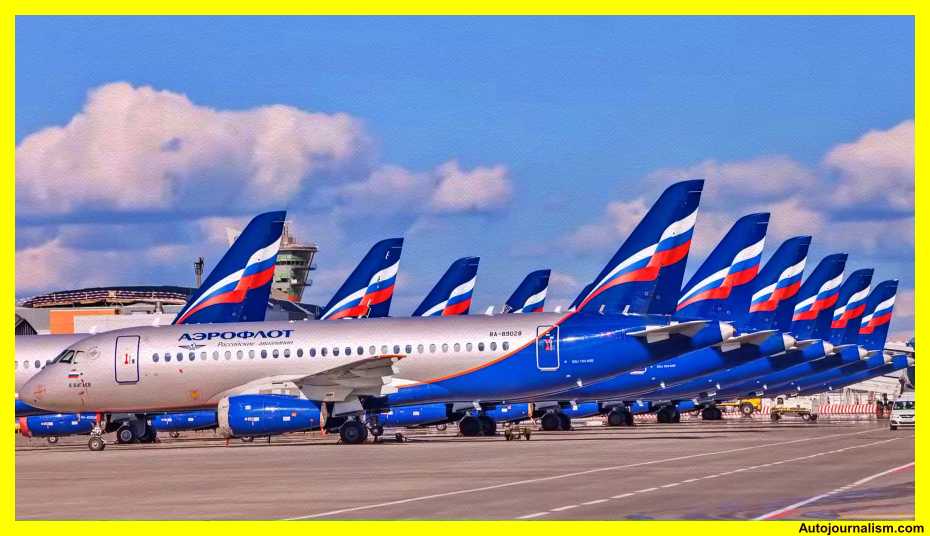
Here’s a detailed table highlighting key information about the United Aircraft Corporation:
| Attribute | Information |
|---|---|
| Company Name | United Aircraft Corporation (UAC) |
| Founded | 2006 |
| Headquarters | Moscow, Russia |
| CEO | Yuri Slyusar |
| Key Products | Military Aircraft, Commercial and Cargo Aircraft, Aviation Technologies |
| Notable Products | Su-30, Su-35, Su-57 (Fighter Jets), MC-21 (Commercial Airliner) |
| Total Employees (2018) | Approximately 100,000 |
| Revenue (2018) | $6 billion (last reported figure) |
| Primary Focus | Military and Commercial Aviation, Aerospace Technologies |
| Innovation | Leader in military aircraft production, including advanced fighter jets. Involved in the development of commercial airliners with a focus on the MC-21 series. |
| Recent Developments | Continued production and development of military aircraft, including the Su-57. Ongoing efforts in supplying commercial aircraft to both domestic and international markets. |
| Global Impact | UAC is a major contributor to Russia’s military aviation capabilities and has a presence in the international market, supplying both military and commercial aircraft. |
| Challenges | Challenges include geopolitical dynamics affecting international collaborations and competition, as well as adapting to changing market demands for commercial aviation. |
| Future Outlook | UAC continues to play a crucial role in Russia’s aerospace industry. The company aims to expand its presence in both military and commercial aviation markets, with ongoing developments in advanced aircraft technologies. |
United Aircraft Corporation remains a significant player in the aerospace industry, contributing to Russia’s military capabilities and pursuing advancements in commercial aviation. The company’s focus on innovation and diverse portfolio reflects its commitment to meeting the demands of the global aerospace market.
#9. Bombardier (Revenue: $7.63 billion)
Bombardier, a well-known Canadian company, generated a total revenue of $7.63 billion in 2023. Initially involved in various transportation sectors, Bombardier now focuses primarily on business and private jets. This shift sets them apart from competitors, positioning them as a leading name in the business jet market.
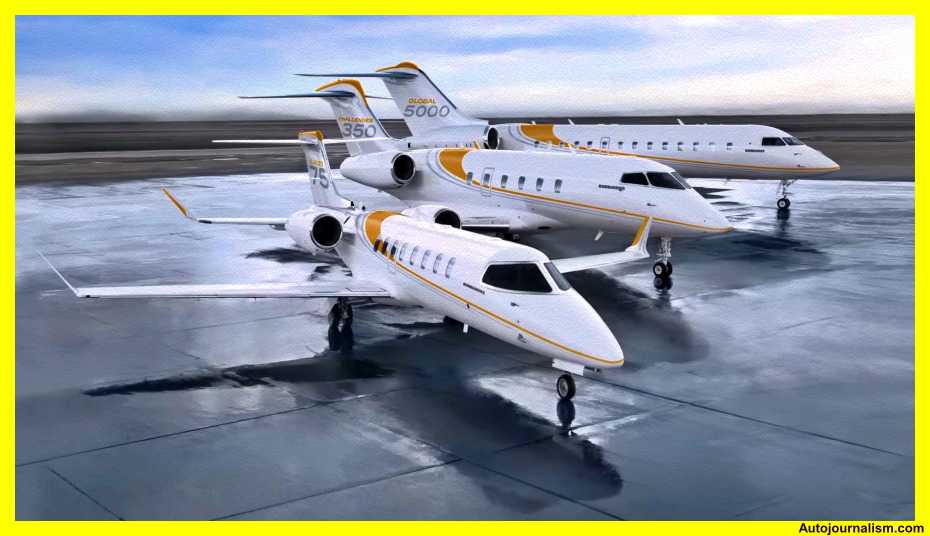
Here’s a detailed table highlighting key information about Bombardier:
| Attribute | Information |
|---|---|
| Company Name | Bombardier Inc. |
| Founded | 1942 |
| Headquarters | Montreal, Quebec, Canada |
| CEO | Éric Martel |
| Key Products | Business and Private Jets, Trains, Transportation Systems |
| Notable Products | Global series business jets, Challenger series business jets, CRJ Series regional jets |
| Total Employees (2023) | Not specified |
| Revenue (2023) | $7.63 billion |
| Primary Focus | Business and Private Aviation, Transportation Solutions |
| Innovation | Leader in business and private jet manufacturing. Historical involvement in various transportation sectors, including trains and regional jets. |
| Recent Developments | Strategic focus on business aviation, divesting commercial aircraft programs. Concentration on expanding the market presence of business jets. |
| Global Impact | Bombardier has been a significant player in the global business aviation sector, contributing to private and business travel. The company’s transportation solutions have also left a mark in various regions. |
| Challenges | Challenges include market dynamics in the aviation industry, adjustments to strategic focus, and responding to changing trends in transportation. |
| Future Outlook | Bombardier aims to strengthen its position in the business aviation market. The company continues to focus on providing innovative solutions for private and business jet travel. |
Bombardier, with its history in various transportation sectors, has evolved to become a key player in the business aviation market. The company’s strategic focus on private and business jets reflects its commitment to meeting the evolving demands of the aviation industry.
#8. Leonardo (Revenue: $16.20 billion)
Founded in Italy in 1948, Leonardo is one of the oldest companies on the list. With recent financial records indicating revenue of $16.20 billion, the company employs around 50,000 people and specializes in manufacturing civilian, military, and helicopter technologies. Leonardo’s expertise extends to cybersecurity, satellite technologies, and flight training.
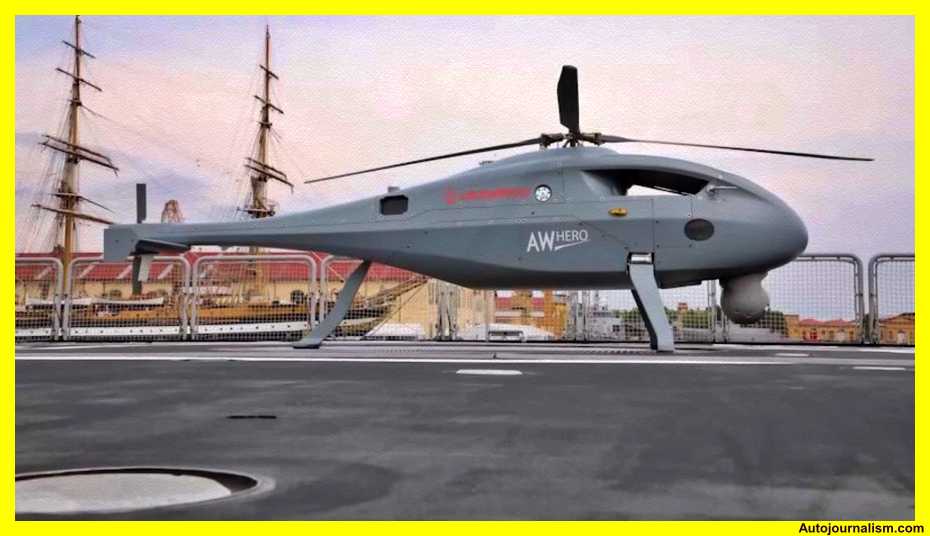
Here’s a detailed table highlighting key information about Leonardo:
| Attribute | Information |
|---|---|
| Company Name | Leonardo S.p.A. |
| Founded | 1948 |
| Headquarters | Rome, Italy |
| CEO | Alessandro Profumo |
| Key Products | Civilian and Military Aircraft, Helicopters, Defense and Security Technologies |
| Notable Technologies | M-346 Master Trainer Aircraft, AW139 Helicopter, Typhoon Fighter Jet, Cybersecurity Solutions |
| Total Employees (2023) | Approximately 50,000 |
| Revenue (2023) | $16.2 billion |
| Primary Focus | Aerospace, Defense, Cybersecurity, Helicopters |
| Innovation | Leader in military aircraft, helicopter technologies, and avionics. Provides cybersecurity solutions and advanced technologies for both civilian and military applications. |
| Recent Developments | Collaboration with Singapore Airlines to outfit their Fleet of Boeing’s Tri 79 with carbon brakes and wheels. Continued advancements in satellite technologies and aerospace solutions. |
| Global Impact | Leonardo is a global aerospace and defense player, contributing to the security and technology needs of various nations. Its aircraft and technologies have a broad impact on the global aerospace landscape. |
| Challenges | Challenges in the industry include changing defense budgets, global economic conditions, and the need to adapt to evolving technological requirements. |
| Future Outlook | Leonardo continues to focus on innovation in military and civilian aerospace technologies. The company aims to address future challenges through advancements in cybersecurity and sustainable aviation solutions. |
Leonardo, with its diversified portfolio and global presence, plays a crucial role in shaping the aerospace and defense industries. The company’s commitment to innovation and technology positions it as a key player in providing advanced solutions for both civilian and military applications.
#7. GE Aviation (Revenue: $22 billion)
Although GE Aviation doesn’t manufacture its own aircraft, it is a crucial player in the industry. With a revenue of at least $22 billion in 2023, the company supplies engines and technology to major aircraft manufacturers. Notably, their engines power commercial airliners like the Boeing Dreamliner and Airbus A380, making them a key contributor to the aviation ecosystem.
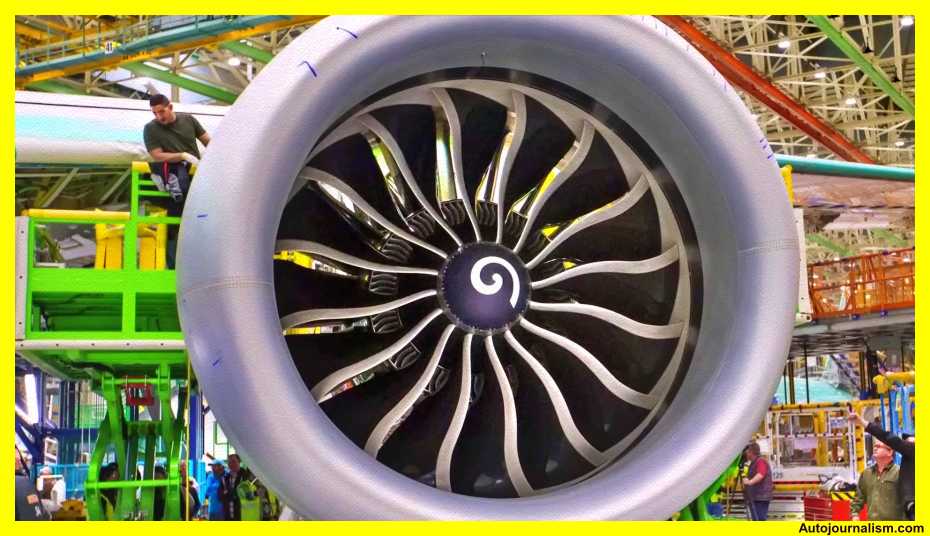
Here’s a detailed table highlighting key information about GE Aviation:
| Attribute | Information |
|---|---|
| Company Name | GE Aviation |
| Founded | 1917 (As part of General Electric) |
| Headquarters | Evendale, Ohio, United States |
| CEO | John L. Flannery |
| Key Products | Aircraft Engines, Avionics, Digital Solutions |
| Notable Technologies | GE90, GEnx, CFM LEAP engines, Digital Solutions for Aviation, Advanced Avionics |
| Total Employees (2023) | Not specified |
| Revenue (2023) | $22 billion |
| Primary Focus | Aircraft Engines, Aviation Technologies |
| Innovation | Leader in jet engine technology, advancements in digital solutions for aviation, and cutting-edge avionics. |
| Recent Developments | Design and supply of engines for commercial airliners, military aircraft, and business jets. Continued focus on digital solutions to enhance aircraft performance and efficiency. |
| Global Impact | GE Aviation is a major global player, providing engines for a wide range of commercial and military aircraft. Its technologies contribute to the efficiency and reliability of aviation worldwide. |
| Challenges | Challenges in the aviation industry include market dynamics, regulatory compliance, and the need for continuous innovation to meet environmental and performance standards. |
| Future Outlook | GE Aviation continues to be at the forefront of aircraft engine technology. The company aims to address future challenges through advancements in digital solutions and sustainable aviation technologies. |
GE Aviation, with its rich history and technological expertise, plays a crucial role in shaping the aviation industry. The company’s focus on innovation and providing cutting-edge solutions for aircraft engines positions it as a key contributor to the global aerospace landscape.
#6. Safran (Revenue: $23 billion)
French company Safran, with a revenue of $23 billion in 2023, stands out as a world leader in navigation systems for both commercial and military aircraft. Employing around 81,000 people, Safran’s recent achievements include securing a contract with Singapore Airlines to equip their Boeing 787 fleet with carbon brakes and wheels.
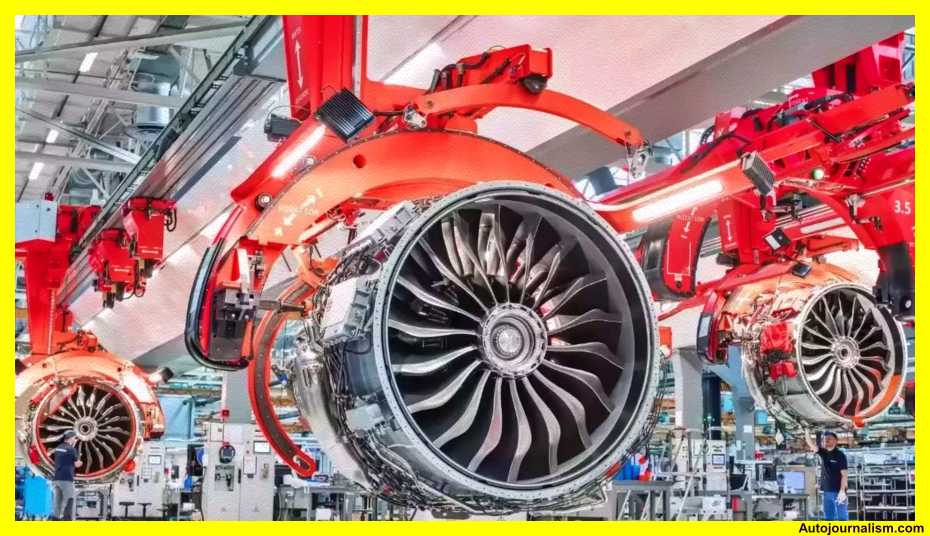
Here’s a detailed table highlighting key information about Safran:
| Attribute | Information |
|---|---|
| Company Name | Safran |
| Founded | 2005 (Merger of Snecma and Sagem) |
| Headquarters | Paris, France |
| CEO | Olivier Andriès |
| Key Products | Aircraft Engines, Aerospace Systems, Defense, Security Technologies |
| Notable Technologies | CFM International engines, LEAP engines, Aircraft landing gear, Avionics, Optronics, Defense and Security Systems |
| Total Employees (2023) | Approximately 81,000 |
| Revenue (2023) | $23 billion |
| Primary Focus | Aerospace, Defense, Security, Aircraft Equipment |
| Innovation | Leader in aircraft propulsion systems, advancements in avionics and optronics, contributions to aircraft landing gear technology. |
| Recent Developments | Securing contracts for providing carbon brakes and wheels for Boeing’s Tri 79 Fleet. Ongoing advancements in aircraft propulsion technologies. |
| Global Impact | Safran is a global player in the aerospace and defense industry, providing critical technologies and components for a wide range of aircraft worldwide. |
| Challenges | The aerospace industry faces challenges related to market dynamics, global economic conditions, and the need for continuous innovation to meet evolving industry demands. |
| Future Outlook | Safran continues to focus on advancements in aircraft propulsion, avionics, and defense technologies. The company aims to remain a key contributor to the aerospace and defense sectors globally. |
Safran, with its diverse range of aerospace and defense technologies, stands as a prominent player in the industry. The company’s commitment to innovation and global impact underscores its significance in shaping the future of aviation and security technologies.
#5. Northrop Grumman (Revenue: $38.6 billion)
With a revenue of $38.6 billion in 2023, Northrop Grumman is a well-established military aircraft manufacturer based in Virginia. The company, with over 90,000 employees, is renowned for producing the Grumman X-47B, the first unmanned aerial vehicle, and the B21 bomber. They are also actively involved in hypersonic weapons development.
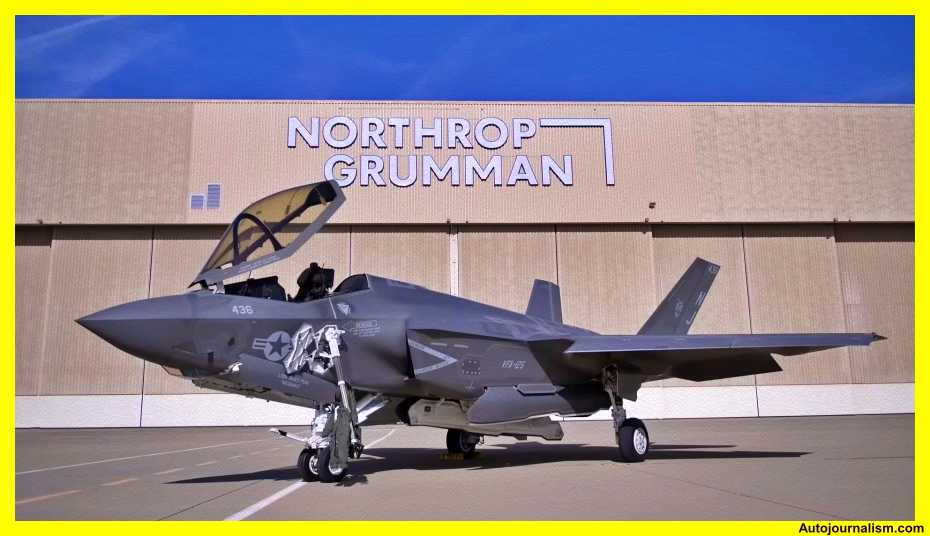
Here’s a detailed table highlighting key information about Northrop Grumman:
| Attribute | Information |
|---|---|
| Company Name | Northrop Grumman Corporation |
| Founded | 1939 (As Northrop Corporation), Merger with Grumman Corporation in 1994 |
| Headquarters | Falls Church, Virginia, United States |
| CEO | Kathy Warden |
| Key Products | Military Aircraft, Unmanned Systems, Defense Systems |
| Notable Aircraft | B-2 Spirit Bomber, Global Hawk UAV, X-47B Unmanned Aircraft |
| Total Employees (2024) | Over 99,000 |
| Revenue (2023) | $38.6 billion |
| Primary Focus | Aerospace, Defense, Cybersecurity |
| Innovation | Pioneer in stealth technology, unmanned systems, advancements in military aircraft, and contributions to space exploration. |
| Recent Developments | Ongoing development of advanced unmanned systems, including the X-47B unmanned aircraft. Active involvement in hypersonic weapons technology. |
| Global Impact | Northrop Grumman is a major contributor to global defense capabilities, providing critical technologies for military applications and space exploration. |
| Challenges | The defense industry, including Northrop Grumman, faces challenges related to evolving threats, changing defense budgets, and the need for continuous technological advancements. |
| Future Outlook | Northrop Grumman continues to be at the forefront of defense and aerospace technology. The company is actively involved in shaping the future of military aviation, unmanned systems, and space exploration. |
Northrop Grumman, with its rich history and technological expertise, plays a vital role in advancing military capabilities and exploring the frontiers of aerospace and defense. The company’s focus on innovation and cybersecurity underscores its commitment to meeting the challenges of the modern era.
#4. Raytheon Technologies (Revenue: $67.8 billion)
Based in Massachusetts, Raytheon Technologies generated $67.8 billion in revenue in 2023. Boasting approximately 180,000 employees, the company is distinguished by its focus on parallel diversity training. Raytheon is working on innovative projects, including GTF engines with better fuel economy and a hybrid engine plane.
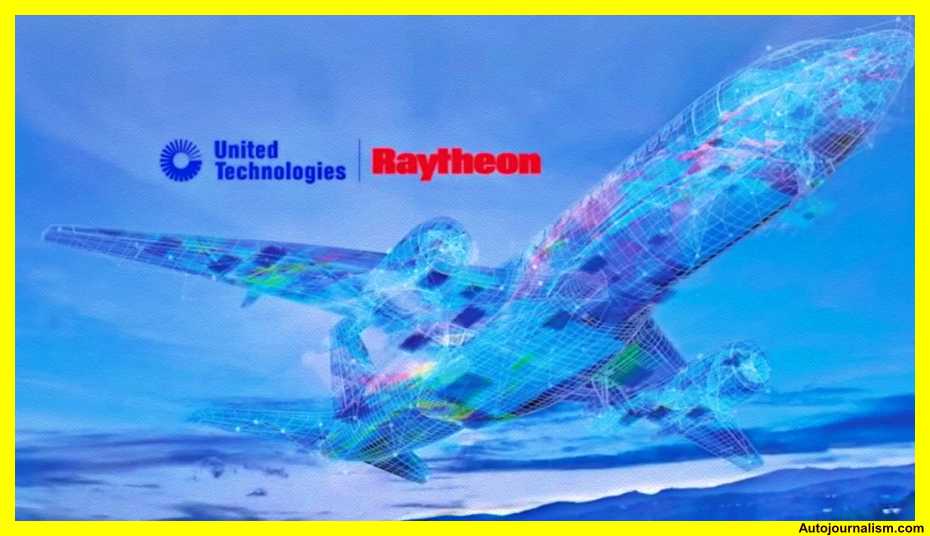
Here’s a detailed table highlighting key information about Raytheon Technologies:
| Attribute | Information |
|---|---|
| Company Name | Raytheon Technologies |
| Founded | April 3, 2020 (Merger of Raytheon Company and United Technologies) |
| Headquarters | Waltham, Massachusetts, United States |
| CEO | Gregory J. Hayes |
| Key Products | Aircraft Engines, Avionics, Defense Systems |
| Notable Technologies | Pratt & Whitney Engines, Collins Aerospace Avionics, Raytheon Missiles & Defense Systems |
| Total Employees (2024) | Approximately 180,000 |
| Revenue (2023) | $67.8 billion |
| Primary Focus | Aerospace, Defense, Technologies |
| Innovation | Pioneer in aircraft propulsion technology, advancements in avionics, contributions to missile defense systems, and a focus on sustainable aviation solutions. |
| Recent Developments | Development of next-generation GTF (Geared Turbofan) engines for improved fuel efficiency. Ongoing advancements in defense systems, including missile technologies and radar systems. |
| Global Impact | Raytheon Technologies plays a vital role in global aerospace and defense, providing critical technologies that enhance national security and contribute to advancements in aviation. |
| Challenges | The aerospace industry, including Raytheon Technologies, faces challenges related to market dynamics, changing defense budgets, and the need for continuous innovation to stay competitive. |
| Future Outlook | Raytheon Technologies continues to focus on developing cutting-edge technologies for aircraft engines, avionics, and defense systems. The company is actively engaged in addressing challenges and shaping the future of aerospace and defense. |
Raytheon Technologies, formed through a merger of two industry giants, stands as a key player in aerospace and defense technology. With a focus on innovation and sustainability, the company plays a crucial role in shaping the future of aviation and national security.
#3. Lockheed Martin (Revenue: $67.6 billion)
Lockheed Martin, a giant in the defense industry, recorded an estimated revenue of $67.6 billion in 2023. With iconic models like the SR71 Blackbird and the F35 Lightning 2, the company specializes in aerospace and technology, with a significant portion of its revenue derived from the US military.
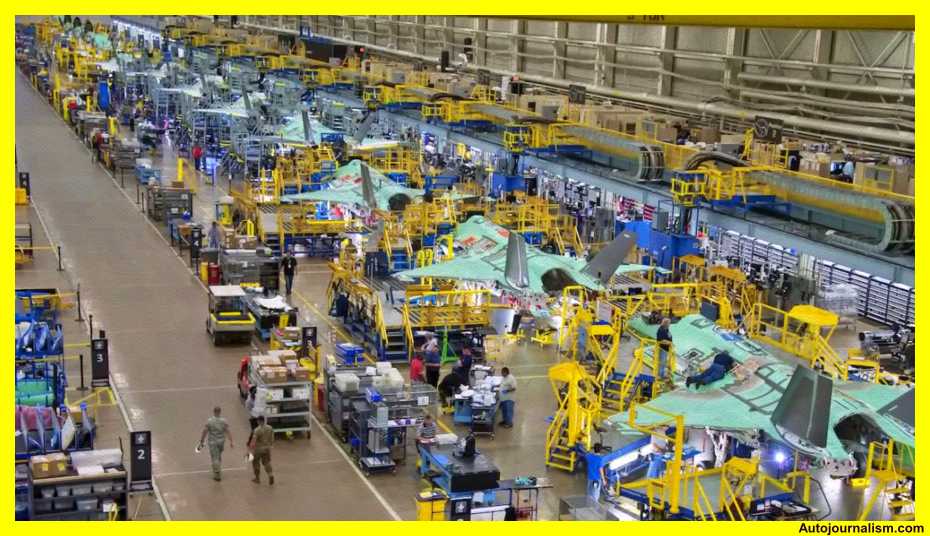
Here’s a detailed table highlighting key information about Lockheed Martin:
| Attribute | Information |
|---|---|
| Company Name | Lockheed Martin |
| Founded | March 15, 1995 (Merger of Lockheed Corporation and Martin Marietta) |
| Headquarters | Bethesda, Maryland, United States |
| CEO | James D. Taiclet |
| Key Products | Military Aircraft, Space Systems, Defense Technology |
| Notable Aircraft | F-35 Lightning II, F-22 Raptor, C-130 Hercules, U-2 Dragon Lady |
| Total Employees (2024) | Approximately 114,000 |
| Revenue (2023) | $67.6 billion |
| Primary Focus | Aerospace, Defense, Security, Space Exploration |
| Innovation | Leader in advanced military aircraft technology, development of stealth technology, contributions to space exploration, and advancements in defense systems. |
| Recent Developments | Lockheed Martin continues to be a major player in the development of the F-35 Lightning II, the most advanced multi-role fighter aircraft. Ongoing involvement in space exploration, including the Artemis program with NASA. |
| Global Impact | Lockheed Martin is a key contributor to global security through its defense systems and military aircraft. The company’s technological innovations have had a profound impact on military capabilities worldwide. |
| Challenges | The defense industry, including Lockheed Martin, faces challenges such as budget constraints, changing geopolitical dynamics, and the need for continuous technological advancements. Additionally, criticism and concerns about the cost and sustainability of certain programs, such as the F-35, have been raised. |
| Future Outlook | Lockheed Martin remains at the forefront of defense and aerospace technology, with a focus on developing advanced systems to address evolving global security challenges. The company is actively involved in shaping the future of military aviation and space exploration. |
Lockheed Martin’s contributions to aerospace and defense technology have established it as a major player in global security and space exploration. The company continues to push the boundaries of innovation in military aircraft and advanced technologies.
#2. Airbus (Revenue: $67.95 billion)
Airbus, the world’s largest airliner manufacturer, reported a revenue of $67.95 billion in 2023. Although impacted by the pandemic, the company remains a key player in commercial airliner manufacturing. Airbus is renowned for introducing the first-ever digital fly-by-wire airliner plane, revolutionizing aircraft controls.
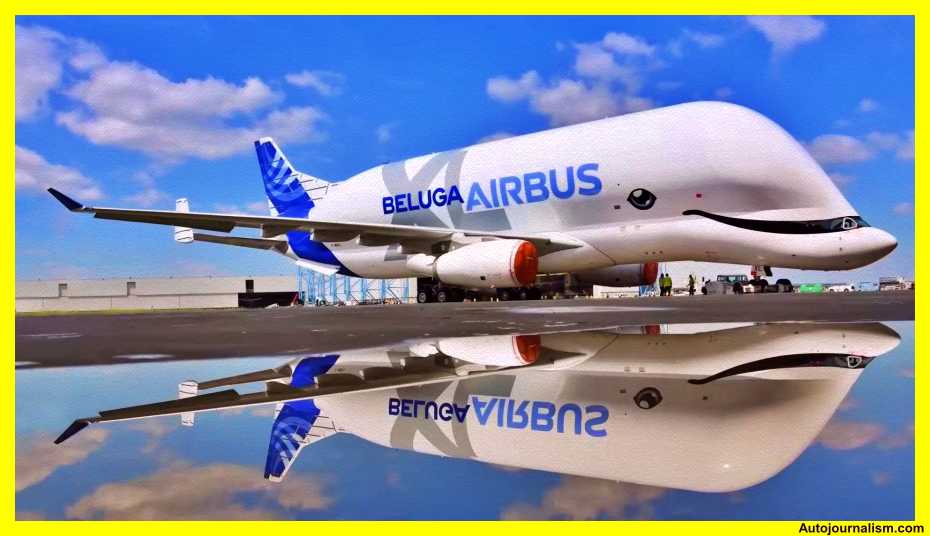
Here’s a detailed table highlighting key information about Airbus:
| Attribute | Information |
|---|---|
| Company Name | Airbus |
| Founded | May 29, 1970 |
| Headquarters | Toulouse, France |
| CEO | Guillaume Faury |
| Key Products | Commercial Airliners, Military Aircraft, Helicopters |
| Notable Aircraft | A320, A380, A350 XWB, A400M, Eurofighter Typhoon |
| Total Employees (2024) | Approximately 131,000 |
| Revenue (2023) | $67.95 billion |
| Primary Focus | Commercial and Military Aviation, Aerospace Technology |
| Innovation | Leader in fly-by-wire technology, continuous advancements in fuel efficiency, commitment to sustainability, and pioneering innovations such as the A380’s double-deck design. |
| Recent Developments | Launch of the A321XLR, an extended-range version of the A321neo, and the A350 XWB, Airbus’s long-range, twin-engine wide-body jet. Continued focus on the development of next-generation, fuel-efficient aircraft. |
| Global Impact | Airbus is a major player in the global aviation market, contributing significantly to both commercial and military sectors. Its aircraft connect people worldwide, and the company’s innovations have set industry standards. |
| Challenges | The aerospace industry, including Airbus, faced challenges due to the COVID-19 pandemic, leading to disruptions in production and a decrease in demand for new aircraft. Trade disputes and regulatory challenges have also impacted the company. |
| Future Outlook | Airbus remains at the forefront of the aviation industry, with plans to continue expanding its product portfolio and enhancing sustainability efforts. Ongoing developments, such as the urban air mobility project, showcase Airbus’s commitment to shaping the future of aviation. |
Airbus, a European aerospace giant, continues to influence the aviation landscape with its cutting-edge technology and commitment to sustainable and efficient air travel.
#1. Boeing (Revenue: $75.7 billion)
Topping the list is Boeing, an American corporation with a diverse portfolio that includes commercial airliners, weapon systems, satellites, and rockets. With a staggering revenue of $75.7 billion in 2023, Boeing remains a global leader despite challenges, including the grounding of the 737 models in 2017. As travel resumes post-pandemic, Boeing is poised to regain its reputation and continue maximizing revenue across various sectors.
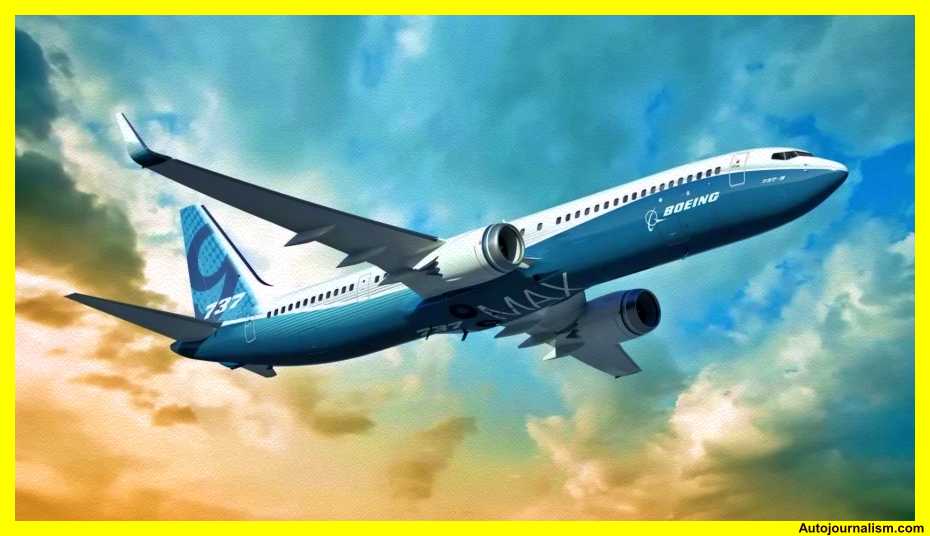
Here’s a detailed table highlighting key information about Boeing:
| Attribute | Information |
|---|---|
| Company Name | Boeing |
| Founded | July 15, 1916 |
| Headquarters | Chicago, Illinois, United States |
| CEO | David L. Calhoun |
| Key Products | Commercial Airliners, Defense Systems, Satellites |
| Notable Aircraft | 737, 747, 777, 787 Dreamliner, F/A-18, KC-46 Pegasus |
| Total Employees (2024) | Approximately 143,000 |
| Revenue (2023) | $75.7 billion |
| Primary Focus | Commercial and Military Aviation |
| Innovation | Continuous advancements in aircraft design and technology, emphasis on sustainability and fuel efficiency. |
| Recent Developments | Ongoing development of the 777X, the latest addition to the successful 777 family. Continued focus on space exploration and defense systems. |
| Global Impact | Boeing plays a crucial role in connecting people worldwide through its commercial airliners, contributing significantly to the global aerospace industry. Additionally, its defense systems contribute to national security globally. |
| Challenges | Faced challenges with the grounding of the 737 MAX series in 2019 due to safety concerns, impacting both reputation and financials. The aerospace industry has also been affected by the COVID-19 pandemic, leading to disruptions in production and reduced demand for new aircraft. |
| Future Outlook | Despite challenges, Boeing remains a key player in the aviation and aerospace industry. With the gradual recovery of the aviation sector post-pandemic, Boeing aims to regain its position as a leader in commercial and military aviation. Ongoing focus on innovation and sustainability will likely shape its future endeavors. |
Boeing, with its extensive history and global influence, continues to shape the aerospace industry with a commitment to excellence and innovation.
Conclusion: Charting a Course for Aerospace Excellence
- In the dynamic realm of aviation, these largest aircraft manufacturers serve as beacons of innovation, connectivity, and progress. From Boeing’s iconic airliners to Airbus’s commitment to sustainability, Lockheed Martin’s defense capabilities, and Raytheon Technologies’ propulsion advancements, each company contributes to shaping the skies of tomorrow. As we navigate the complexities of the aerospace industry, these giants of the sky pave the way for a future where aviation knows no bounds, connecting people, cultures, and ideas across the globe, These top 10 aircraft manufacturers play a crucial role in shaping the aviation landscape, contributing to technological advancements and global connectivity. Stay tuned for further developments in this dynamic industry.
Previous Post: Top 10 Biggest Military Recovery Trucks in the World (AEV)
Source: Internet + Previous Knowledge + YouTube – Here is the YT link

